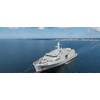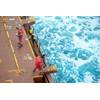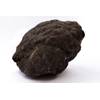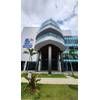Maersk, Koole in Dutch Deal for 2020 Fuel
Maersk’s subsidiary Maersk Oil Trading has teamed up with Dutch liquid bulk storage operator Koole Terminals for the production of IMO 2020-compliant bunker fuel in the Port of Rotterdam.
According to a Maersk statement, the production will take place at the Petrochemical Industrial Distillation (PID) unit, located at Koole’s Botlek site in the heart of the Port of Rotterdam. The toll distillation deal allows Maersk to produce VLSFO bunker fuel and will enable Maersk to further expand its bunker supply volumes in Europe.
Annual production is expected to cover 5-10% of Maersk’s annual fuel demand.
“The fuel manufacturing process allows Maersk to produce compatible low sulfur fuels that complies with the IMO 2020 sulfur cap implementation, reducing the need to rely on 0.1% price-based gasoil and fuel oil outside the ECA zones. Our activities with Koole will be an important driver in ensuring stable, reliable services for Maersk’s customers during a potentially volatile period for global shipping,” said Niels Henrik Lindegaard, Head of Maersk Oil Trading at A.P. Moller - Maersk.
“Koole Terminals continues to explore opportunities to contribute to a sustainable society. One of the initiatives is to utilize our PID unit for producing environmentally friendly transportation fuels. We are proud to partner with Maersk and produce a low sulfur bunker fuel to support the reduction of sulfur emissions in order to reduce air pollution,” said John Kraakman, CEO of Koole Terminals.
The IMO 2020 0.5% sulfur fuel cap will be implemented globally as of 1 January 2020. Bunker fuels within the ECA (Emission Control Area) zones will remain at the current cap of 0.1% sulfur. Koole's PID unit will also enable Maersk the possibility to produce such ECA 0.1% sulfur fuel.
Related News





